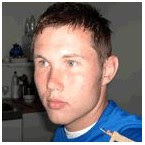Executives at Eskom, South Africa's state-owned power utility, have just presented their most detailed recovery plan to date. They are currently attempting to both reduce concerns about the power crisis and raise portions of the R350bn ($48bn, €31bn, £24bn) needed to finance a new set of power plants. Topping Eskom’s list of good news was the South African energy regulator’s decision in June to raise the price of electricity by 27 per cent this year, followed by rises of between 20 and 25 per cent for the next three years.
Soaring costs of coal and diesel fuel, however, threaten to plunge Eskom into annual losses before it begins its capital expenditure programme in earnest. South Africa is still running on a dangerously thin reserve margin of electricity. Any unexpected spikes in demand could plunge the country into the rolling blackouts it has already experienced back in January. A precarious reserve margin is expected to last until at least 2012.
The crux of South Africa’s problem is on the supply side. It cannot expect significant boosts to its power supply for four more years until the first of huge new coal-fired power plants come on line. To “plug the gap” Eskom plans to focus on generating power through trapping steam and other byproducts of existing industrial processes. The duration of the country’s power crisis partly depends on how quickly Eskom can raise international financing to build plants, and that depends on maintaining its investment-grade credit rating.
Moody’s, Standard and Poor’s and Fitch are all weighing downgrades, but none has made announcements yet. Key to their assessments is the government backing that Eskom can expect over its five-year, R350bn expansion plan.
The Rand
South Africa's rand fell against the dollar last Friday. The currency retreated from a six-month high against the dollar, dropping 0.2 percent to 7.3515 as of 11:24 a.m. in Johannesburg, from 7.3360 yesterday. Earlier it rose as much as 0.6 percent to 7.2887, the strongest level since Jan. 31. South Africa's currency was the best performer in the world against the dollar and euro in July on bets accelerating inflation will spur the central bank to lift interest rates, boosting demand for the rand in so-called carry trades.
House Prices
South African house prices fell 2.6 percent in July from a year ago as accelerating inflation and interest rates at a five-year high discouraged buyers, according to Standard Bank Group Ltd., Africa's biggest lender. The median price of a house dropped to 570,000 rand ($77,975). It was the fifth month of annual declines in home prices in Africa's biggest economy.
Facebook Blogging
Edward Hugh has a lively and enjoyable Facebook community where he publishes frequent breaking news economics links and short updates. If you would like to receive these updates on a regular basis and join the debate please invite Edward as a friend by clicking the Facebook link at the top of the right sidebar.
Monday, August 4, 2008
Subscribe to:
Post Comments (Atom)














No comments:
Post a Comment